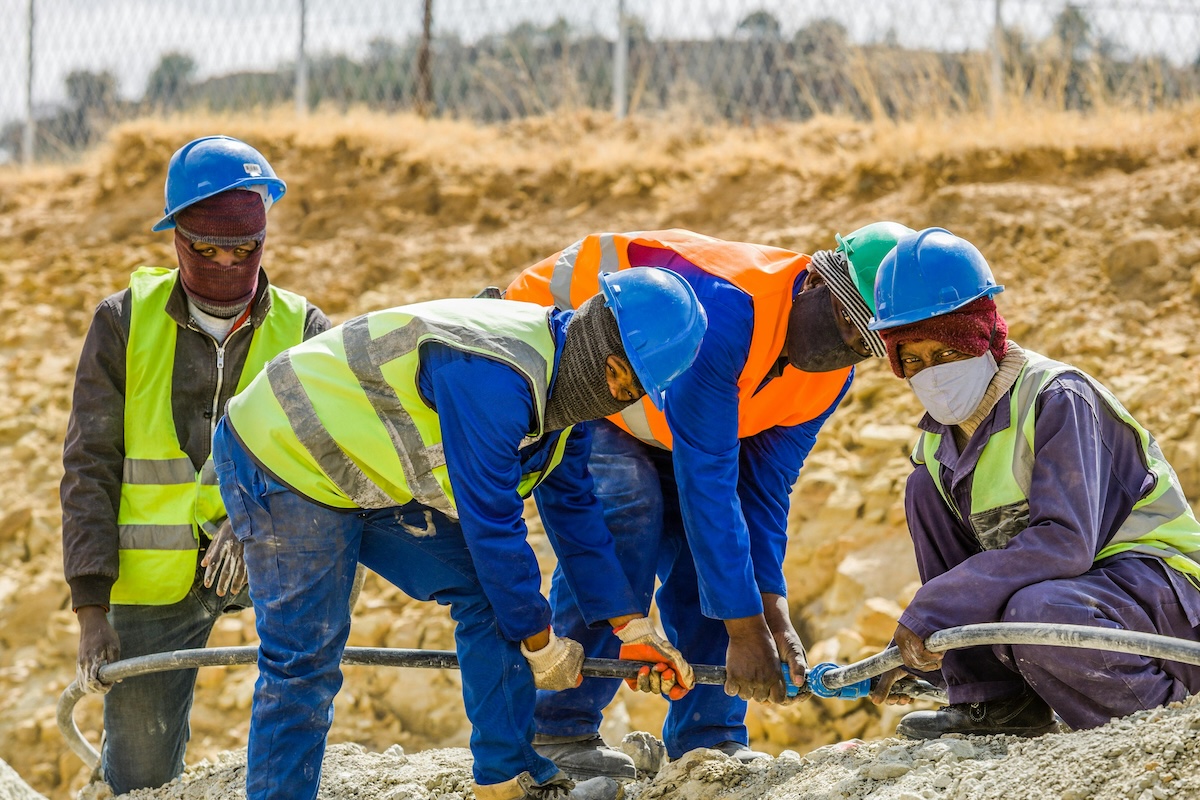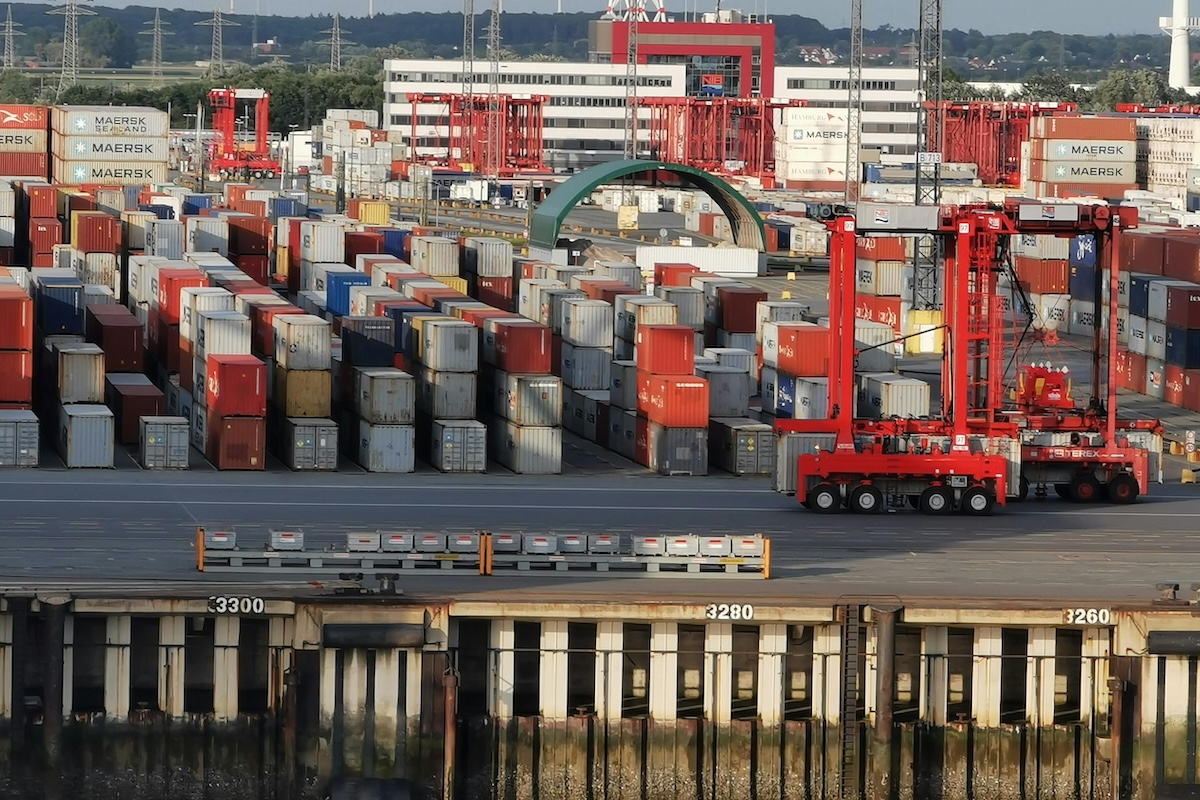Navigating the DDTC Registration Process

Article Summary
DDTC registration is a legal requirement under ITAR for companies involved in manufacturing, exporting, or brokering defense articles and services.
Any person or company engaged in defense trade activities, including manufacturers, exporters, and brokers of items on the U.S. Munitions List (USML), must register.
Form DS-2032, the Statement of Registration, is the application required to register with DDTC, detailing business activities, ownership, and compliance history.
Registration fees start at $3,000 for Tier 1 entities and increase based on the size and scope of the company’s defense trade activities.
Registration is valid for one year and must be renewed annually to maintain compliance and eligibility for export licenses.
Companies must maintain records, report changes in ownership or structure, train employees on ITAR, and prepare for audits or enforcement actions.
Introduction
For companies and individuals involved in the manufacture, export, or brokering of defense articles and defense services, compliance with the International Traffic in Arms Regulations (ITAR) is not optional—it’s a legal requirement. A key component of ITAR compliance is registration with the U.S. Department of State’s Directorate of Defense Trade Controls (DDTC).
DDTC registration does not in itself authorize exports; rather, it establishes a company’s eligibility to apply for licenses, agreements, and other authorizations required to participate in defense trade. Whether you’re a manufacturer, exporter, or broker, understanding the DDTC registration process is critical for lawful and successful operations in the defense industry.
Key Details About the DDTC Registration Process
1. Who Must Register?
Under ITAR, any person or company engaged in the business of manufacturing, exporting, or temporarily importing defense articles—or furnishing defense services—must register with DDTC. This includes not only large defense contractors but also small businesses, start-ups, and brokers who may be involved in arranging or facilitating defense-related transactions. Even companies that do not directly export but manufacture items on the U.S. Munitions List (USML) are required to register.
2. The Registration Application (Form DS-2032)
The registration process begins with the completion of Form DS-2032, the Statement of Registration. Applicants provide details about their business activities, ownership, subsidiaries, and key senior officials. The form also requires disclosure of whether the company or its owners are subject to debarment, criminal charges, or export control violations. This ensures that only responsible parties are permitted to engage in defense trade activities.
3. Registration Fees
Registration with DDTC requires the payment of an annual registration fee, which varies depending on the size and scope of a company’s activities. Fees begin at a baseline rate for smaller entities but can increase significantly for organizations with numerous license applications or high export volumes. Understanding the fee structure is important for budgeting, particularly for small and mid-sized businesses.
4. Validity and Renewal Requirements
DDTC registration is valid for one year from the date of approval. Companies must renew annually by submitting updated information and paying the required fee. Failure to maintain active registration can disrupt business operations, as companies without valid registration cannot apply for export licenses or maintain compliance with ITAR. Many organizations establish internal compliance calendars to ensure renewals are submitted well before expiration.
5. Compliance Obligations Beyond Registration
Registering with DDTC is just the first step in ITAR compliance. Registered entities are subject to ongoing obligations, including recordkeeping, reporting changes in ownership or structure, and ensuring employees receive proper export control training. Registration also places companies under DDTC’s regulatory oversight, meaning they must be prepared for audits, inquiries, or enforcement actions if compliance issues arise.
Conclusion
The DDTC registration process is a cornerstone of ITAR compliance and a gateway for companies participating in the defense trade. By identifying who is engaged in the manufacture, export, and brokering of defense articles and services, registration allows the U.S. government to maintain oversight and protect national security interests.
For businesses, successful registration requires more than just submitting a form—it demands a clear understanding of ITAR obligations, careful documentation, and a commitment to ongoing compliance. Companies that take the process seriously not only avoid penalties but also position themselves as trustworthy partners in the highly regulated world of international defense trade.
Key Points
What is DDTC registration, and why is it important?
- Definition: DDTC registration is a mandatory process under ITAR for companies involved in the manufacture, export, or brokering of defense articles and services.
- Purpose:
- Enables the U.S. government to monitor and regulate defense trade.
- Serves as a prerequisite for applying for export licenses and other authorizations.
- Importance: Ensures compliance with U.S. national security and foreign policy objectives.
Who is required to register with DDTC?
- Mandatory Registrants:
- Manufacturers of defense articles listed on the U.S. Munitions List (USML), even if they do not export.
- Exporters of defense articles or services.
- Brokers facilitating defense-related transactions, including financing or transportation.
- Applicable to:
- Both U.S. and foreign persons involved in defense trade activities.
- Exemptions: Certain activities may be exempt, but these are limited and must be verified under ITAR regulations.
What is the process for completing DDTC registration?
- Step 1: Determine if your company’s activities fall under ITAR and the USML.
- Step 2: Access the DECCS portal to initiate the registration process.
- Step 3: Complete Form DS-2032, providing:
- Business details (name, address, EIN).
- Ownership and key personnel information.
- Description of defense-related activities.
- Disclosure of any past violations or enforcement actions.
- Step 4: Pay the applicable registration fee based on the tiered fee structure.
- Step 5: Submit the application and await approval, typically within 30 days.
What are the fees and renewal requirements for DDTC registration?
- Fees:
- Tier 1: $3,000 for smaller entities or first-time registrants.
- Tier 2: $4,000 for mid-sized entities.
- Tier 3: $4,000 plus $1,100 for each favorable determination beyond five.
- Renewal:
- Registration is valid for one year.
- Companies must submit renewal applications 60–30 days before expiration.
- Failure to renew can result in penalties and disrupt business operations.
What are the ongoing compliance obligations after DDTC registration?
- Recordkeeping: Maintain detailed records of defense trade activities for at least five years.
- Reporting: Notify DDTC of material changes, such as ownership, leadership, or address updates.
- Training: Ensure employees are trained on ITAR compliance, including export controls and handling of defense articles.
- Audits: Be prepared for DDTC audits or inquiries to verify compliance.
- Licensing: Obtain appropriate export licenses for specific transactions.
Who benefits from understanding the DDTC registration process, and how?
- Manufacturers:
- Ensure compliance with ITAR to avoid penalties and maintain eligibility for defense contracts.
- Exporters:
- Gain access to export licenses and authorizations for international defense trade.
- Brokers:
- Facilitate defense-related transactions legally and efficiently.
- Compliance Officers:
- Develop robust compliance programs to mitigate risks and ensure adherence to ITAR regulations.
- Small Businesses:
- Navigate the complexities of ITAR registration and compliance to expand into defense trade markets.










